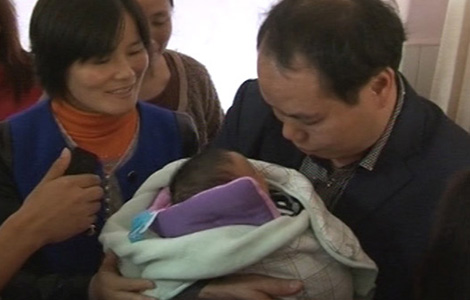International attention on future reform agenda for China
Updated: 2013-11-07 16:22
(chinadaily.com.cn)
|
|||||||||||
On fiscal and financial reform
Elaine La Roche, former chief executive officer of China International Capital Corp.
"Obviously, China needs to focus on fiscal reforms with respect to the introduction of property tax."
Ayumi Konishi, director general of East Asia Department, Asian Development Bank
The tax base should be broadened and taxation has to be made more progressive for the sake of social equity. The introduction of green taxation will make the growth model environmentally sustainable.
Maria Jesus Herrerias, senior research fellow of contemporary Chinese Studies at the University of Nottingham in the United Kingdom, says China needs to promote further economic reforms to avoid the middle-income trap, which can be addressed at domestic and international levels.
At home, China needs to improve the efficiency of banks, and small and medium enterprises need to get access to credit to finance their investment projects and convertibility of the renminbi to facilitate international transactions. Meanwhile, China also needs to generate more incentives to boost domestic consumption, at the expense of traditional savings, to offset the predominance of foreign demand as a source of economic growth.
"The continuous dependence on external demand exposes China to international shocks like the current economic crisis," Herrerias says.
George Magnus, an economic consultant and former chief economist at UBS
It is also likely that the Third Plenum will back some changes in the tax and subsidy regime that suppresses "factor prices": energy, electricity, capital and water, scarcity of which is recognized as one of the key drags on economic growth.
More liberal price determination should help improve economic and investment efficiency, resource allocation and the environment, even though it will raise the cost of living.
Financial and monetary reform initiatives are expected too. These are designed to deepen and widen financial and capital markets, underpin a stable and safe shadow banking system, and gradually liberalize capital account transactions.
Murtaza Syed, resident representative of the International Monetary Fund in China
"As China begins to put reforms in place to make its domestic economy more balanced, I think there will also be great opportunities for the rest of the world," he said.
Former US Treasury Secretary Henry Paulson said China is offering more opportunities to small- and medium-sized enterprises, promoting its capital distributing efficiency, and striking a balance between consumption and investment.
Such reforms are of unprecedented significance for the world economy amid a sluggish recovery of global growth, as they will bring new products and investment opportunities, he said.
The upcoming plenum will establish a new direction for the Chinese economy, which is important for both China and developed nations, Paulson said.
Simon Baptist, Asia Regional Director with the Economist Intelligence Unit
"Property assets are such a central part of the Chinese financial system, as well as people's savings and people's assets, so movement in the property market has a big impact on China." [more]
Today's Top News
China, India, Russia seek co-op on int'l issues
Man attacks 2 foreign students with hammer
Vaccine switch to prevent paralysis
Suspect arrested in 3 children's murder
SOE reforms to be launched after plenum
'Singles Day' to see big spenders
Launch zone challenges
European satellite continues fall to Earth
Hot Topics
Lunar probe , China growth forecasts, Emission rules get tougher, China seen through 'colored lens', International board,
Editor's Picks

|

|

|

|

|

|





